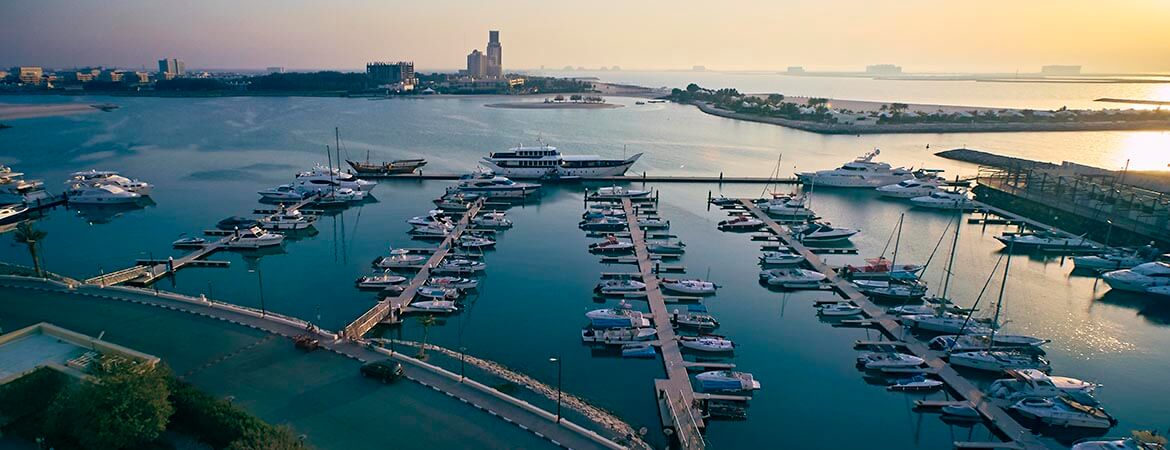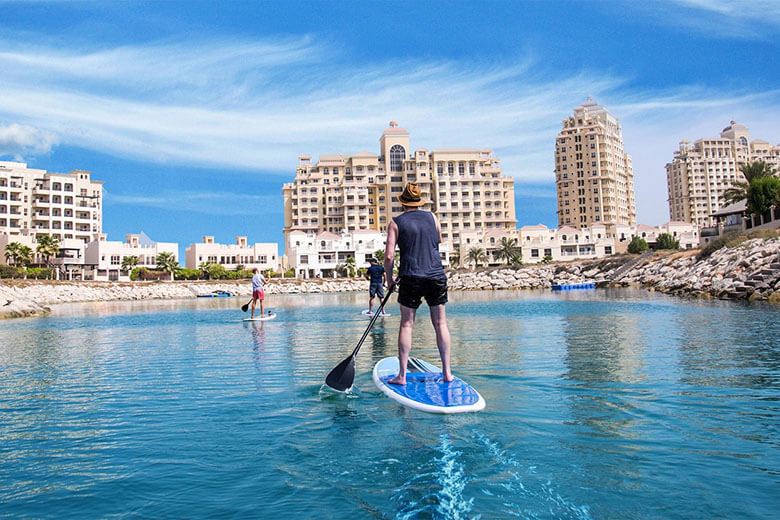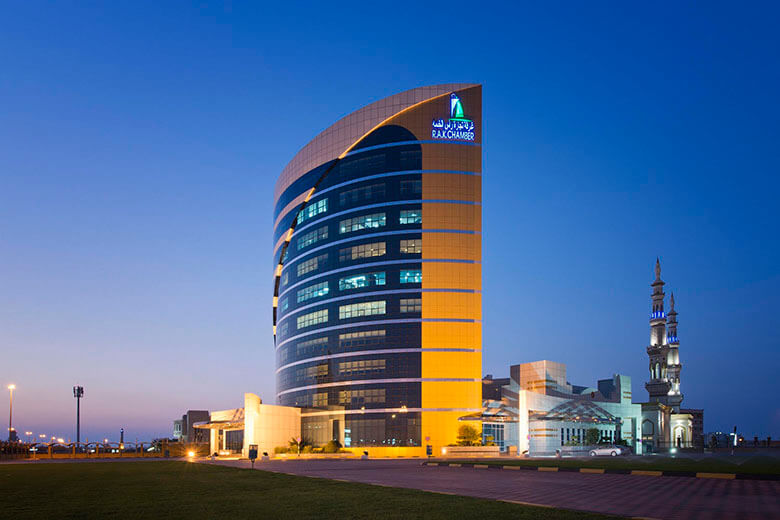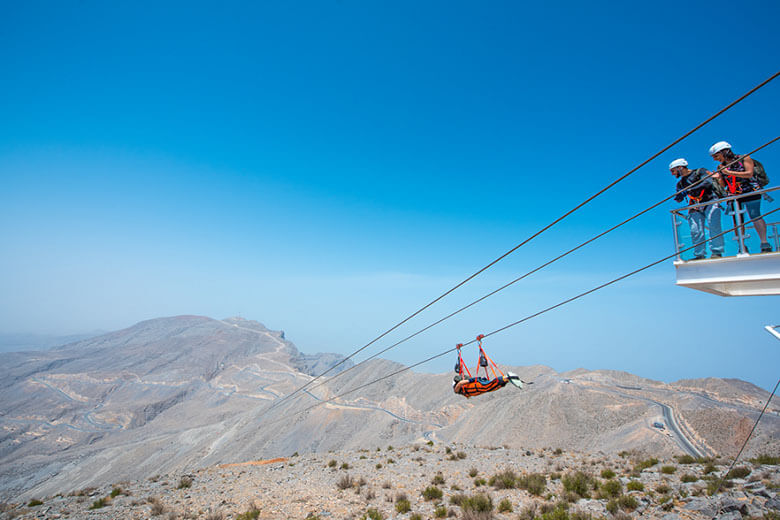Ras Al Khaimah has been a cornerstone of the United Arab Emirates (UAE)’s economic development since before the nation was founded in 1971, providing the raw ingredients for the country’s impressive rise on the global stage. It is rock extracted from Ras Al Khaimah’s spectacular mountainous terrain that has created the UAE’s powerhouse cities that are responsible for helping place the country firmly on the world map. However, as with all forms of progress, priorities change over the years. The UAE is now leading the way in creating a diversified economy based on knowledge and sustainability, with Ras Al Khaimah at the fore of this new direction.
Economic Progress
Ras Al Khaimah Government adopts a fiscally prudent approach to governance and is committed to improving the ease of doing business. The consolidated Government budget has been in surplus every year since 2010 and it follows conservative debt policies that ensure the debt-to-GDP ratio maintains a consistent downward trend.
This cooperative and institutional approach has made Ras Al Khaimah a haven for SMEs and big businesses, with more than 38,000 companies from 100 countries representing over 50 industries already taking advantage of the business licenses and services offered by either Ras Al Khaimah Economic Zone (RAKEZ), Ras Al Khaimah Chamber of Commerce and Industry or the Department of Economic Development (DED).
Free Zone Expansion
The two free zones that Sheikh Saud introduced in the early 2000s have helped the emirate earn a mark in the global economic map as an ideal investment destination in the region.
Collectively, the free zones have become two of the leading business hubs in the UAE, and in 2017 they joined forced to become RAKEZ.
RAKEZ oversees six zones dedicated to various types of industries and is now home to more than 15,000 businesses across more than 50 sectors. These include many SMEs and also 770 world-leading manufacturers, such as Ahmad Tea, Knauf and Franke.
Tourism & Hospitality Development
Another area of major progress in Ras Al Khaimah over the past 10 years has been in the tourism and hospitality sector. The emirate has become known as a great place to get away from the hustle and bustle of the city, and the diversity of Ras Al Khaimah’s terrain – from rolling deserts, to beautiful beaches and imposing mountains – has allowed it to offer an array of differing activities in close proximity to each other.
Recognition of the emirate’s achievements in this field came at the start of 2020 when the GCC named Ras Al Khaimah as the Gulf Tourism Capital 2020.
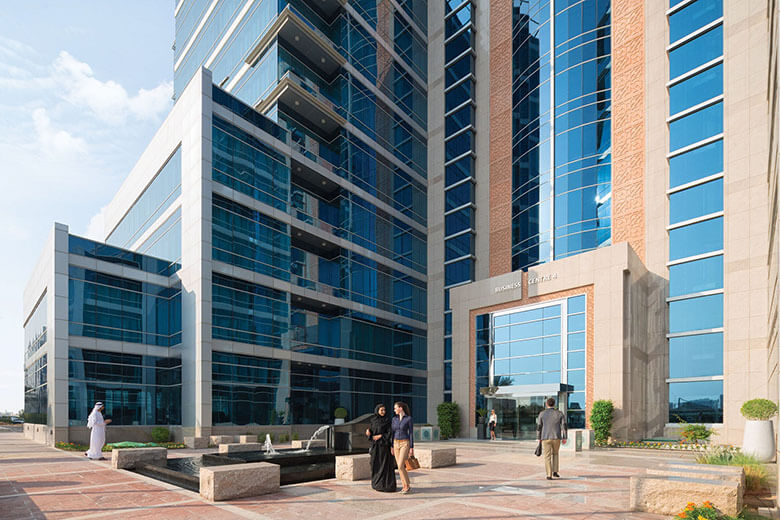
Lifestyle Upgrade
Al Hamra Village, which first opened in 2004, was Ras Al Khaimah’s first foray into real estate development and the area has subsequently grown into a thriving 77 million square feet community of about 10,000 residents living in more than 1,000 villas and almost 2,500 apartments at costs much more affordable than similar communities elsewhere. Built around a beautifully designed 18-hole golf course, Al Hamra Village has become a hit with tourists and residents alike, with its marina, mall, multiple restaurants and bars and some of the Emirate’s finest hotels.
A few kilometers north of Al Hamra Village lies the luxury beachside community of Mina Al Arab, developed by RAK Properties. The first phase of this stunning development, Granada, was handed over in 2010, with numerous other areas, such as Malibu, Bermuda and Flamingo, opening in the years since, making this community the mature development we see today.
Digitalisation and Communication
Since 2010, Ras Al Khaimah has been undergoing a digital transformation, in line with the UAE strategy to improve and digitise government services. The Electronic Government Authority is driving digitalisation as a means to further improve and simplify services, to the extent that now more than 450 services from various Ras Al Khaimah Government departments have been transitioned into e-services available online.
Quarrying and Transport Revolution
Stevin Rock and RAK Rock have been quarrying in the mountains above Ras Al Khaimah to extract quality limestone, dolomite and gabbro materials that are then taken by road or by sea from nearby Saqr Port, the largest bulk-handling port in the Middle East, across the UAE, the GCC countries, India and beyond. Burj Khalifa, the Palm Jumeirah, Dubai Mall – all have been built using materials from these mountains.
Another transport option is Ras Al Khaimah International, which has become a key focal point in the repatriation of Indian expatriates during the current pandemic, allowing more than 53,000 people to return home on more than 300 flights in collaboration with the airline and the Indian Government.
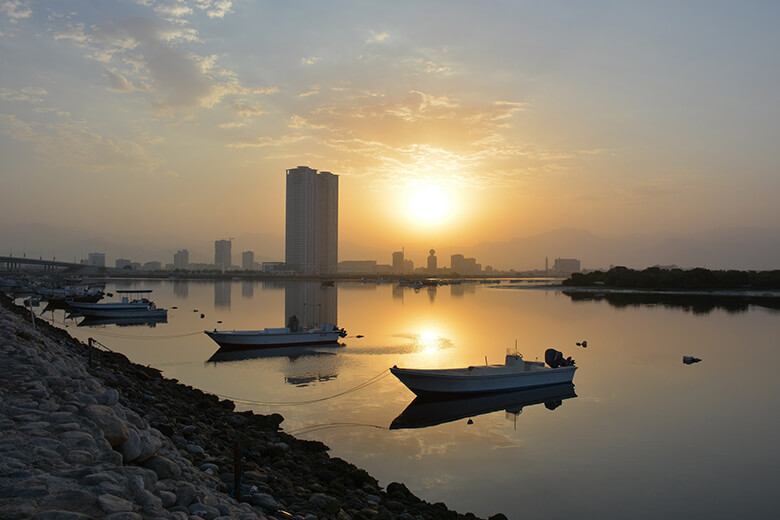
Educational Advancement
Ras Al Khaimah has a proud history of academic achievement and through the wisdom of the late Sheikh Saqr, the emirate was one of the first to establish an education system.
Sheikh Saud has continued in his father’s footsteps by championing education through the Academic Zone, the Al Qasimi Foundation for Policy Research, through scholarships, and through the setting up of educational establishments.
Greater Historical Understanding
Ras Al Khaimah has an illustrious history that dates back some 7,000 years and it is one of the few places in the world that has been continuously inhabited for that entire duration.
At the centre of the emirate’s efforts to discover more about its past and preserve significant locations and artifacts is the Department of Antiquities & Museums, which has in the past 10 years taken on a number of projects, with over 20,000 artifacts having been documented since 2010.
Environmental Progress
As with the preservation of history, Ras Al Khaimah is also conscious about ensuring the preservation of the natural environment. That is why the landmark Energy Efficiency & Renewables Strategy was put in place by Ras Al Khaimah Municipality in 2018, ensuring that buildings are constructed in a sustainable manner. The strategy aims to cut energy use by 30%, water consumption by 20% and ensure 20% contribution from renewable energy sources by 2040.
Healthcare Revolution
Over the past 10 years Ras Al Khaimah’s healthcare institutions have progressed from providing primary healthcare services to the local population to now welcoming to its shores medical tourists who wish to take advantage of the advanced healthcare options available.
A large part of this advancement is thanks to RAK Hospital, which opened in 2007 with just five doctors and now has 75 doctors with a variety of specialties in a vastly expanded facility. From about 100 patients a day in its first years, RAK Hospital now cares for between 800 to 900 outpatients a day. The hospital now provides a variety of surgeries, including cardiac surgery, neurosurgery, spine surgery, and orthopedic surgery.
A Modern Leader
Under His Highness Sheikh Saud bin Saqr Al Qasimi’s remarkable stewardship, Ras Al Khaimah has played – and continues to play – a vital role in the nation’s growth and evolution.. By creating a resilient, flexible and diverse economy underpinned by buoyant sectors in education, healthcare, technology, industry and tourism, Ras Al Khaimah is proving instrumental in the UAE’s ambition to be a 21st-century leader among nations.
